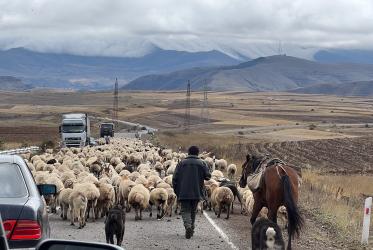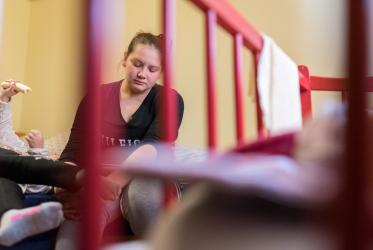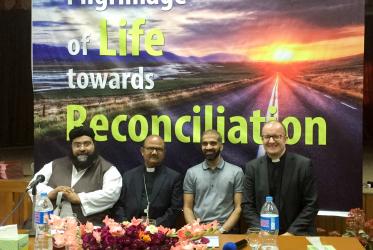Displaying 1 - 20 of 32
25 September 2023
Fr Alexi - a peacemaker in Syria
21 December 2018
G20 summit: call to pray for peace in Hamburg
07 July 2017
Churches in Norway and Pakistan break new ecumenical ground
26 January 2017
Strong bridges needed more than ever
21 December 2016
In Syria and Iraq, minorities must come out of the darkness
28 November 2016
Hielke Wolters: Apostle of mission strategies
01 August 2016
Church of Pakistan hosts Muslims, Christians
23 March 2016













